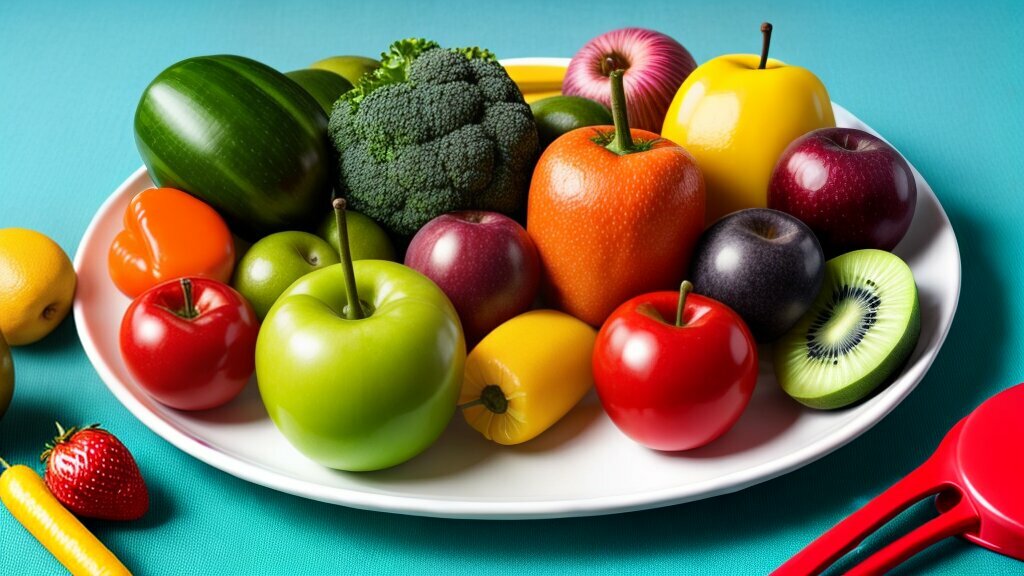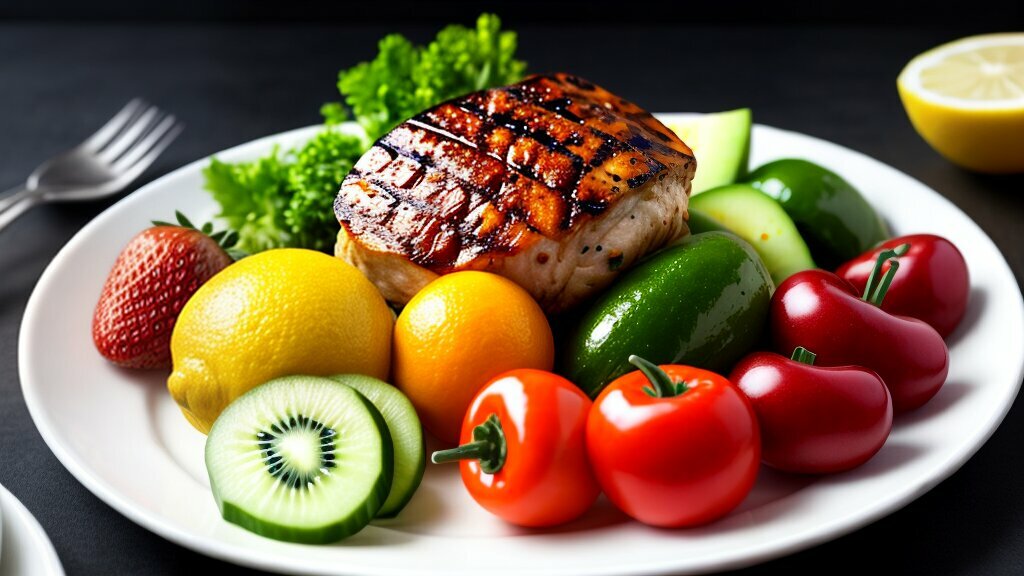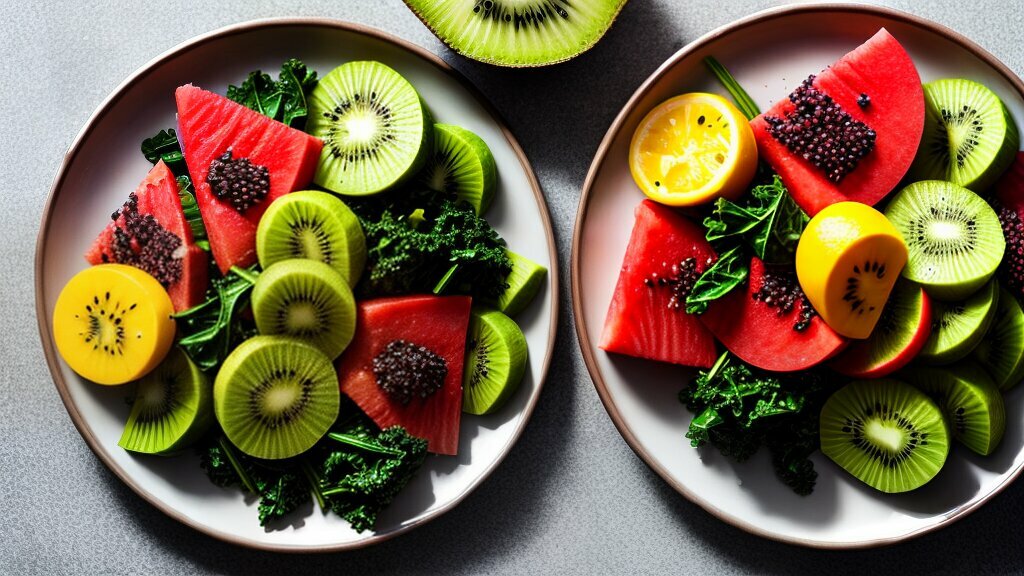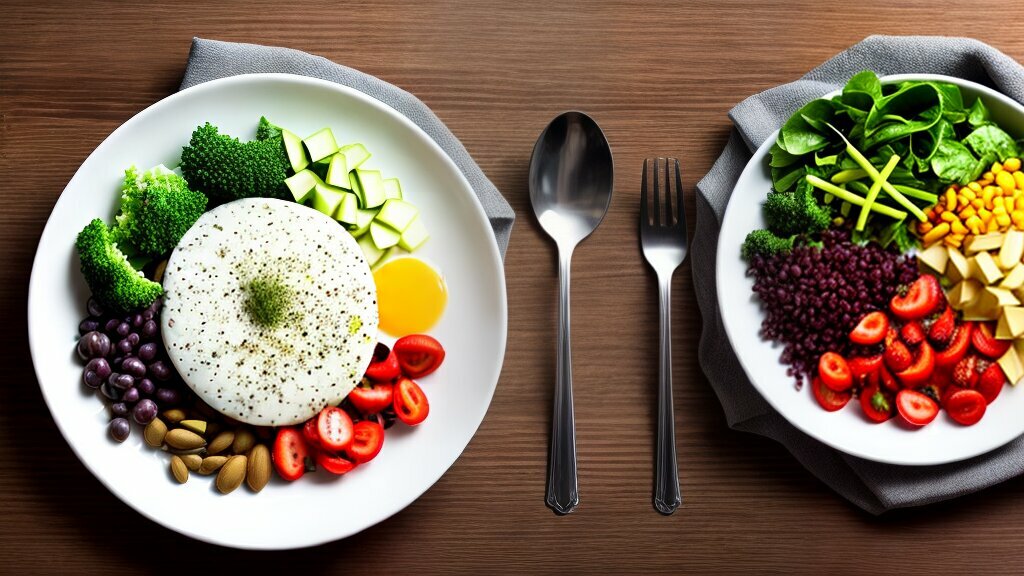As an athlete, you know that your body is your most important asset. Whether you’re a professional athlete or just starting, you need to fuel your body with the right nutrients to perform at your best. That’s where healthy eating comes in.
Healthy eating for athletes isn’t just about eating salads and avoiding junk food. It’s about fueling your body with the nutrients it needs to perform at its peak. A well-balanced diet can help improve your performance, endurance, and recovery. And, as an athlete, you need all the help you can get.
That’s why we’ve created this essential Australian guide to healthy eating for athletes. We’ll provide you with tips and strategies to optimize your nutrition and fuel your performance. And, because this guide is specific to Australia, we’ll highlight local ingredients that are perfect for athlete nutrition.
Key Takeaways:
- A well-balanced diet is essential for athletes to perform at their best.
- This Australian guide provides tips and strategies to optimize nutrition and fuel performance.
- Local Australian ingredients can be beneficial for athlete nutrition.
Fueling Performance: Sports Nutrition for Athletes
As an athlete, your nutrition is the fuel for your performance. To achieve your best, it is essential to fuel your body with the right nutrients at the right time. This section will provide you with guidance on creating a personalized athlete diet plan to fuel your performance effectively.
The Importance of Macronutrients
Macronutrients are the three categories of nutrients that your body needs in large amounts: carbohydrates, proteins, and fats. Each plays a vital role in supporting your athletic performance.
| Macronutrient | Role in Athletic Performance | Examples |
|---|---|---|
| Carbohydrates | Provide energy for training and competition | Whole grain bread, pasta, brown rice, fruits, vegetables |
| Proteins | Repair and build muscle tissue | Lean meat, poultry, fish, eggs, tofu, legumes |
| Fats | Provide energy, support hormone function, and aid in nutrient absorption | Nuts, seeds, avocado, fatty fish, olive oil |
As an athlete, it is essential to find the right balance of macronutrients that works for you. The amount and distribution of macronutrients will depend on factors such as your sport, training intensity, and overall energy needs.
Creating an Athlete Diet Plan
To create an athlete diet plan, start by determining your daily calorie needs. This can be done using online calculators or consulting with a sports dietitian. From there, you can calculate the amount of each macronutrient you need based on your goals, training schedule, and personal preference.
It is also essential to consider the timing of your meals and snacks. Consuming carbohydrates before and during exercise can help sustain energy levels, while protein and healthy fats are important for recovery after exercise.
Finally, aim for a balanced diet that includes a variety of fruits, vegetables, whole grains, and lean proteins. This will ensure that you are getting all the necessary nutrients to support your athletic performance and overall health.

Meal Prep for Athletes: Preparing for Success
Meal preparation is key to success when it comes to optimizing your nutrition for peak athletic performance. By planning and preparing meals in advance, you can save time, money, and ensure you are providing your body with the necessary fuel to perform at your best.
Start by setting aside time each week to plan and prepare your meals. Consider your training schedule and ensure you are incorporating the right balance of macronutrients – carbohydrates, proteins, and healthy fats – to support your athletic goals.
| Meal Prep Tips for Athletes: |
|---|
| 1. Choose nutrient-dense foods, such as whole grains, lean proteins, fruits, and vegetables. |
| 2. Cook in bulk to save time and ensure you always have healthy options on hand. |
| 3. Invest in quality food storage containers and portion out meals in advance. |
| 4. Experiment with different recipes to keep your meals interesting and enjoyable. |
By following these meal prep tips, you can ensure you are fueling your body with the right nutrients to support your athletic performance. Remember to incorporate local Australian ingredients into your meals, such as fresh fruits and vegetables, lean meats, and whole grains. These ingredients are not only delicious but also packed with the essential nutrients your body needs for success.
Image Alt Tag: Meal Prep for Athletes

Nutrition Tips for Athletes: Optimize Your Performance
As an athlete, you need to fuel your body with the right nutrients to optimize your performance. Here are some tips to help you achieve that:
Hydrate, Hydrate, Hydrate
Staying hydrated is crucial for athletic performance. Dehydration can lead to fatigue, cramping, and decreased endurance. Make sure you are drinking enough water throughout the day, especially before, during, and after training and competition. Aim for at least 8-10 glasses of water daily, or more if you are sweating excessively.
Time Your Meals and Snacks
When you eat can be just as important as what you eat. To optimize your performance, try to eat a meal or snack 2-3 hours before training or competition. Choose foods that are easily digestible and provide sustained energy, such as whole grain bread with peanut butter or Greek yogurt with fruit. If you only have an hour or less before exercise, opt for a small snack that is high in carbohydrates, like a banana or granola bar.
Watch Your Portion Sizes
Eating too much or too little can impact your athletic performance. Aim for balanced portions that fuel your body without weighing you down. A good rule of thumb is to fill half your plate with vegetables, one-quarter with lean protein, and one-quarter with complex carbohydrates. Listen to your body’s hunger and fullness cues to determine the right portion sizes for you.
Incorporate Supplements Wisely
Supplements can be useful in filling any nutritional gaps, but they should not replace a balanced diet. Be aware that some supplements may be prohibited by your sports association or may interact with medications you are taking. Consult a sports dietitian or physician before adding any new supplements to your regimen.
By following these nutrition tips, you can optimize your athletic performance and achieve your goals.

Australian Athlete Nutrition Guide: Local Fuel for Peak Performance
As an athlete, fueling your body with the right nutrients is essential for peak performance. Luckily, Australia offers a plethora of local foods that are perfect for nourishing and supporting athletic goals.
Start by incorporating a variety of fruits and vegetables into your diet. Local options such as mangoes, oranges, and bananas are excellent sources of carbohydrates and vitamins for sustained energy during training and competition. For added nutrients, consider adding leafy greens such as spinach and kale to your meals.
| Local Grains | Benefits |
|---|---|
| Brown Rice | Low-glycemic index for sustained energy |
| Quinoa | High in protein and essential amino acids for muscle repair and growth |
| Oats | Rich in fiber for digestion and low-glycemic index for sustained energy |
When it comes to protein sources, Australian athletes have a range of options to choose from. Grass-fed beef, free-range chicken, and locally caught fish are all excellent sources of lean protein. Vegetarian options such as tofu, tempeh, and legumes are also high in protein and offer additional nutrients such as iron and fiber.
Incorporating local ingredients into your meals not only supports your athletic performance but also contributes to sustainable and ethical practices. By choosing local, you are reducing the carbon footprint of your meals and supporting Australian agriculture.
Next time you’re planning your meals, consider incorporating some of these local ingredients for a well-rounded and nutrient-dense diet that will support your athletic goals. Your body will thank you for it!

Australian Athlete Nutrition Guide: Local Fuel for Peak Performance
As an athlete in Australia, taking advantage of the local foods available can be a game-changer for your performance. Incorporating these foods into your diet can provide the nutrients and support needed for optimal performance, endurance, and recovery. Here are some local food recommendations for Australian athletes:
Fruits and Vegetables
Australian-grown fruits and vegetables are packed with vitamins, minerals, antioxidants, and fibre to support your overall health and athletic performance. Some local options to consider include:
- Avocado
- Blueberries
- Kale
- Broccoli
- Spinach
- Sweet potatoes
Whole Grains
Whole grains are an excellent source of complex carbohydrates, fibre, and essential vitamins and minerals. They can provide sustained energy throughout training and competition. Here are some local whole-grain options to consider:
- Brown rice
- Quinoa
- Oats
- Barley
Proteins
Protein is essential for muscle repair, growth, and recovery after exercise. Australian-grown and raised protein sources are an excellent choice for athletes. Consider including these in your diet:
- Grass-fed beef
- Free-range chicken
- Sustainably caught seafood
- Eggs
By incorporating these local foods into your diet plan, you can support your athletic goals while taking advantage of the variety and quality of produce available in Australia. Remember to consult with a qualified nutritionist or dietitian to tailor your diet plan to meet your specific needs as an athlete.
FAQ
Q: Why is healthy eating important for athletes?
A: Healthy eating is essential for athletes as it provides numerous benefits for their performance, endurance, and recovery. A well-balanced diet helps to fuel the body effectively, providing the necessary energy for training and competition. It also supports muscle repair and growth, enhances immune function, and improves overall well-being.
Q: What specific nutrients are important for athletes?
A: Athletes require adequate amounts of macronutrients such as carbohydrates, proteins, and fats. Carbohydrates provide the primary source of energy, while proteins support muscle repair and growth. Healthy fats play a crucial role in maintaining overall health. Additionally, vitamins, minerals, and antioxidants are also important for optimal performance and recovery.
Q: How can athletes create a personalized diet plan?
A: Athletes can create a personalized diet plan by considering their specific nutritional needs and goals. It is important to consult with a sports nutritionist or dietitian who can assess individual requirements and provide tailored guidance. This includes determining the appropriate calorie intake, macronutrient distribution, and meal timing to support optimal performance.
Q: Why is meal preparation important for athletes?
A: Meal preparation is crucial for athletes as it allows for better control over nutritional intake, saves time, and promotes cost-effectiveness. By planning and preparing meals in advance, athletes can ensure they have access to balanced and nutrient-dense foods at all times, even during busy training schedules. It also reduces reliance on unhealthy fast food options and supports consistent fueling for peak performance.
Q: What are some nutrition tips for athletes?
A: Athletes can optimize their performance by following various nutrition tips, such as staying hydrated, timing meals appropriately, monitoring portion sizes, and considering the need for supplementation. It is also important to maintain a balanced diet that includes a variety of fruits, vegetables, whole grains, and lean proteins to meet nutritional requirements and support overall well-being.
Q: What local Australian foods are beneficial for athletic performance?
A: Australian athletes can take advantage of a range of local foods that are beneficial for athletic performance. Some examples include native fruits like the Kakadu plum and finger lime, nutrient-dense vegetables like kale and beetroot, whole grains like quinoa, and proteins like kangaroo or emu. These local foods offer nutritional value and are easily accessible, supporting peak performance for Australian athletes.
